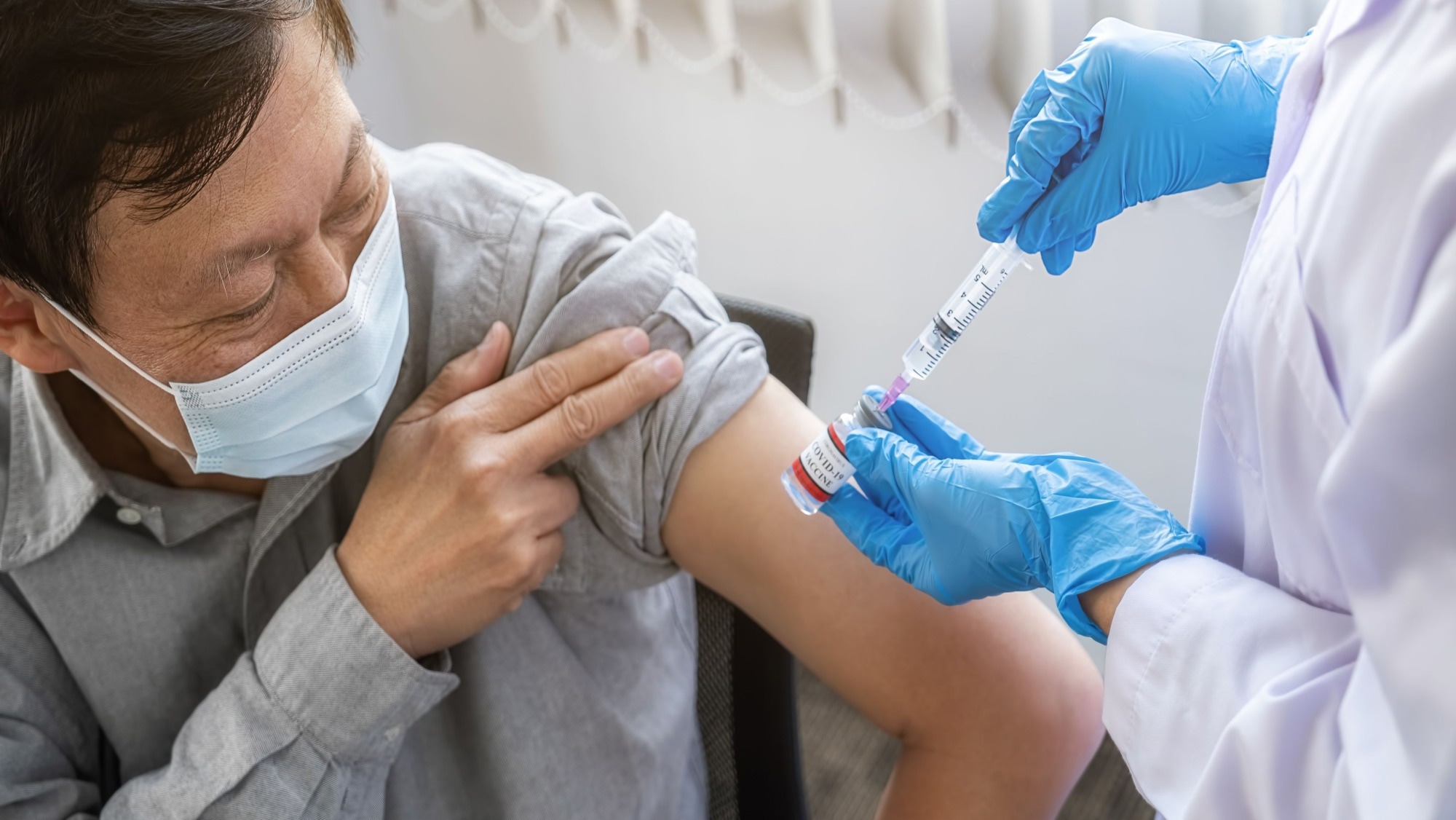In a recent study published in the Lancet Regional Health – Europe, researchers evaluated the efficacy of the fourth dose of coronavirus disease 2019 (COVID-19) vaccine in residents of long-term care facilities (LTCFs).

Background
Previous studies have barely investigated the COVID-19-related all-cause mortality beyond two months of receiving the fourth dose of an mRNA-based COVID-19 vaccine in individuals over 80 years. The authors extensively searched PubMed and medRXiv servers. They found only one study from Israel which reported high relative effectiveness of the fourth compared to the third dose of an m-RNA-based vaccine, between 75 to 80%, against COVID-19-related mortality in the elderly (60+ years) during one to two months of receiving a vaccine. It was critical to obtain evidence on the effects of vaccination in LTCFs as they are frailer and because the transmission in LTCFs has been high.
About the study
In the present study, researchers used cox regression models to estimate hazard ratios for all-cause mortality in recipients of a four-dose mRNA-based vaccine vis-a-vis recipients of a three-dose regimen. They computed relative vaccine effectiveness (VE) as one minus the hazard ratio. They enrolled residents of LTCFs who received a fourth dose of an mRNA vaccine from 1 January 2022 onwards. Next, they made a 1:1 matched cohort of Swedish individuals who received at least a third dose. The team also made another 1:1 matched cohort comprising 80+ individuals who had received a fourth dose and Swedish individuals who received at least a third dose.
The primary study outcome was all-cause mortality from seven days after baseline until 27 May 2022. The team used the Kaplan-Meier method to illustrate cumulative mortality. They also created a product term between vaccination status and dosing interval between the third and fourth dose; likewise, a product term between vaccination status and vaccine type among fourth dose recipients. Finally, the team performed interaction analyses using product terms, which they added to the final Cox model.
Findings
Over 98% of study participants had received BNT162b2 for primary-series vaccination, of which 80% also received a third dose of BNT162b2. Among four-dose recipients, ~60% received BNT162b2, and the remaining received mRNA-1273. The median age of the study cohort with 80+ individuals was 85.2 years. Of these, roughly 58% were women, and ~7% lived in an LTCF. More four-dose recipients lived in LTCFs compared to three-dose recipients (8·6% vs. 5·4%).
The fourth dose of an mRNA-based COVID-19 vaccine reduced all-cause mortality by about 40% during the first two months in LTCF residents. Previously, a Canadian study reported a 40% reduction in COVID-19-related hospitalization or death in LTCF residents from the fourth dose compared to the third dose.
The authors followed up with LTCFs on average for 77 days, and a maximum of 126 days. During days 7 to 60, 1119 residents died, and the observed VE against all-cause mortality was 39% among LTCFs, with no effect of dose interval in fourth-dose recipients. Likewise, the time since the first booster dose and vaccine type had no effect. During subsequent follow-up, from day 61 to 126 days, VE declined to 27%, and there were 259 deaths reported.
In individuals 80 years or older, the average follow-up time was 73 days, with maximum follow-up reaching 143 days. During days 7 to 60, 5753 elderly died, and the observed VE against all-cause mortality was 71%, with a slight effect of living conditions in fourth-dose recipients. Accordingly, the authors observed a VE of 73% for individuals living in their own homes. Although the dosing interval had no impact, the time since the first booster dose changed VEs. The VE of the fourth dose increased to 79% when more than four months had passed since vaccination. During subsequent follow-up, from day 61 to 143 days, VE declined to 54%, and there were 1054 deaths reported.
Conclusions
The current study, executed during the era of the predominance of new SARS-CoV-2 variant of concern Omicron in Sweden, showed that compared to the first booster, a second booster dose substantially decreased the short-term risk of all-cause mortality in LTCF residents and the oldest. However, the conferred protection declined slightly after two months, indicating limited durability of protection from the third dose in the oldest and the frailest. Thus, vaccination timing is crucial for protecting this high-risk population via vaccination.
https://news.google.com/__i/rss/rd/articles/CBMikQFodHRwczovL3d3dy5uZXdzLW1lZGljYWwubmV0L25ld3MvMjAyMjA3MTgvSG93LWVmZmVjdGl2ZS1pcy10aGUtZm91cnRoLWRvc2Utb2YtQ09WSUQtMTktdmFjY2luZXMtaW4tdGhlLWVsZGVybHktYW5kLWxvbmctdGVybS1jYXJlLXJlc2lkZW50cy5hc3B40gEA?oc=5
2022-07-18 10:18:00Z
CAIiENtF8eUpPVUVsP7QMJiw2h0qMwgEKioIACIQZdRflS9INK7zM5FkBi3R3CoUCAoiEGXUX5UvSDSu8zORZAYt0dwwr47MBg
Bagikan Berita Ini














0 Response to "How effective is the fourth dose of COVID-19 vaccines in the elderly and long-term care residents? - News-Medical.Net"
Post a Comment